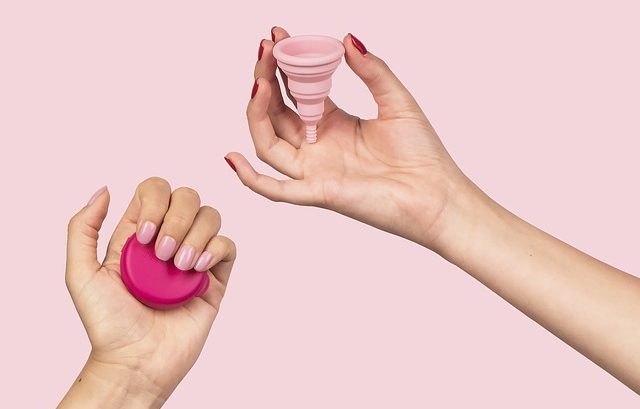‘Plastic periods’: the damaging environmental impact of menstrual products
Menstrual products have been evolving for centuries. Unfortunately, due to the modern disposable lifestyle, these products now contain more plastic than ever before. But, there are ways to have a sustainable period that benefits both you and the planet.
Plastics have been used on a large scale since the 1960s. When they were first developed, scientists were looking for products to incorporate them into. Period products seemed like the perfect place as plastic could be used for the packaging, wings as well as the absorbent layers. With roughly 50% of the world population menstruating at some point during their lives, it is astounding how little is known about the damage plastic period products are having on the environment. Although it is hard to calculate, estimates show that women in the UK use an average of 11,000 disposable period products throughout their lifetime. Over 200,000 tonnes of waste from menstrual products end up in landfills every year, taking up to hundreds of years to break down. A conventional pack of pads has the equivalent amount of plastic as five carrier bags. This works out at about 2.5 grams of plastic for each pad and the packaging itself. It is estimated that a modern pad is around 90% plastic. This level of plastic contributes massively to global warming.
Over 200,000 tonnes of waste from menstrual products ends up in landfills every year, taking up to hundreds of years to break down
Luckily, there are many different products that can allow you to have a more sustainable period. These include menstrual cups, reusable pads and non-applicator biodegradable tampons. The first thing we should do is make sure that no used product is flushed down the toilet. Whilst this may seem like common knowledge, it still happens. In fact, around 75% of all pipe blockages in the UK are due to this reason. Unblocking the pipes due to flushed products is costing around £100 million pounds a year. On top of this financial burden, it is also affecting the environment. This waste often ends up in the oceans which is detrimental to marine life and contributes heavily to plastic pollution. In a 2010 beach clean study, an average of 23 pads and 9 tampon applicators were found per kilometre of the British coastline.
Switching to organic pads or tampons is a good option as they contain fewer chemicals, are more biodegradable and use less water in their production
With a year’s worth of disposable period products equating to a carbon footprint of 5.3kg, it is definitely wise to start searching for alternatives. Products such as the menstrual cup are not only environmentally friendly but also save you money. If switching to a reusable product is not for you, there are other ways to make your period more sustainable. For example, switching to organic pads or tampons is a good option as they contain fewer chemicals, are more biodegradable and use less water in their production.
This being said, nothing will change if periods remain a taboo. Openly talking about alternatives and more sustainable options is the best way to get more people to try them!

Comments